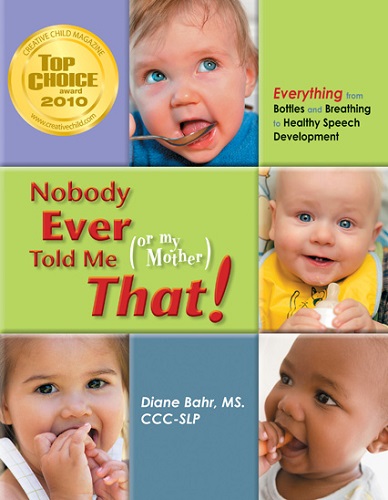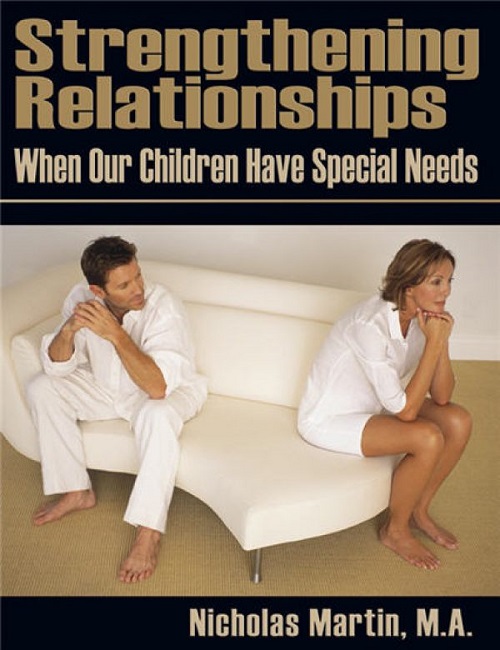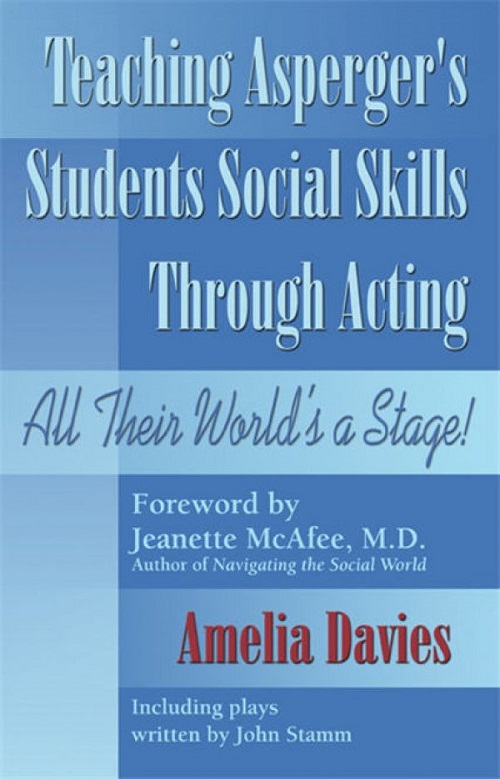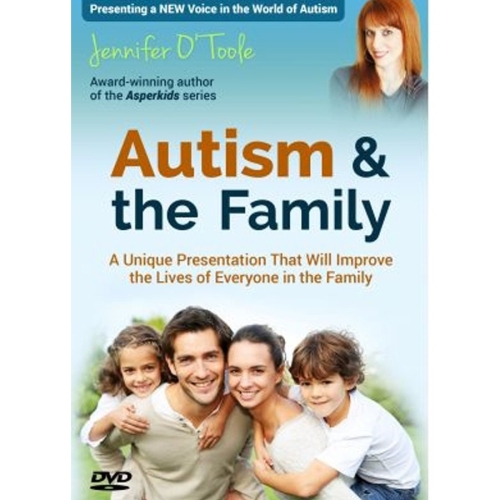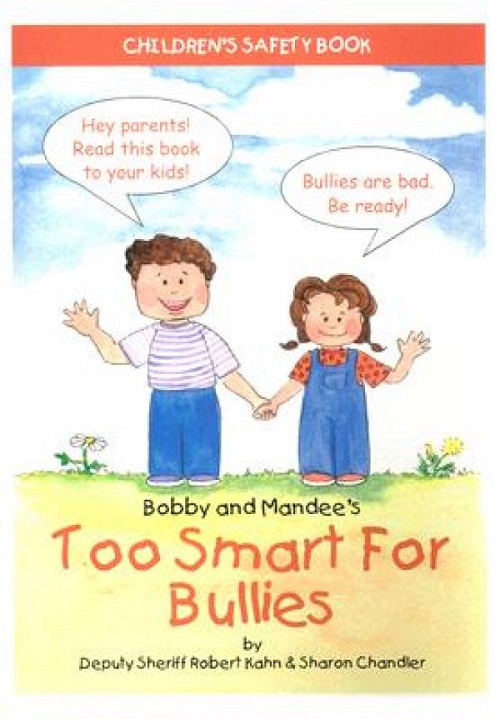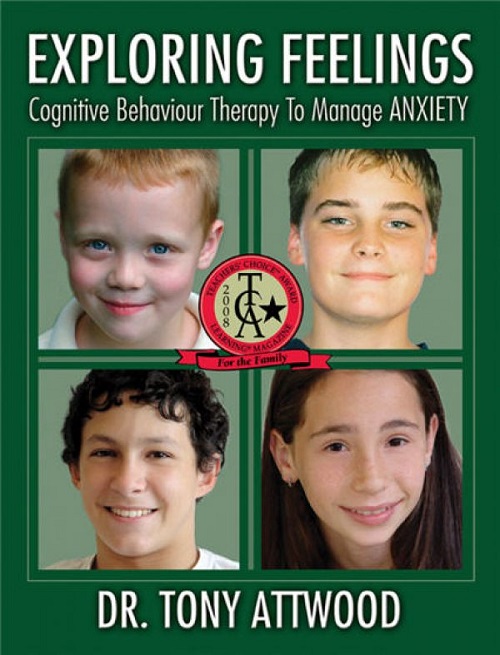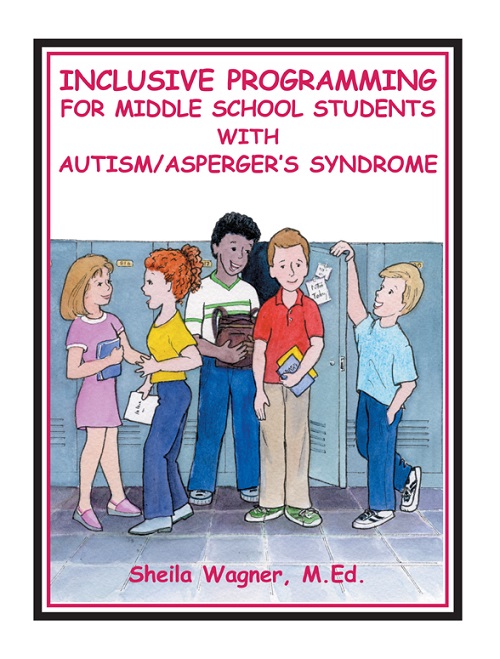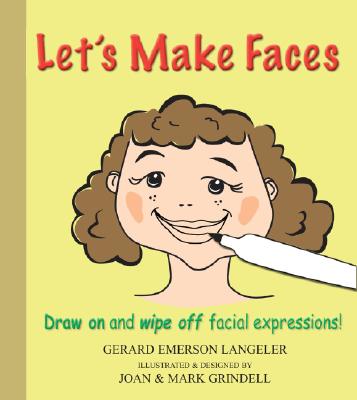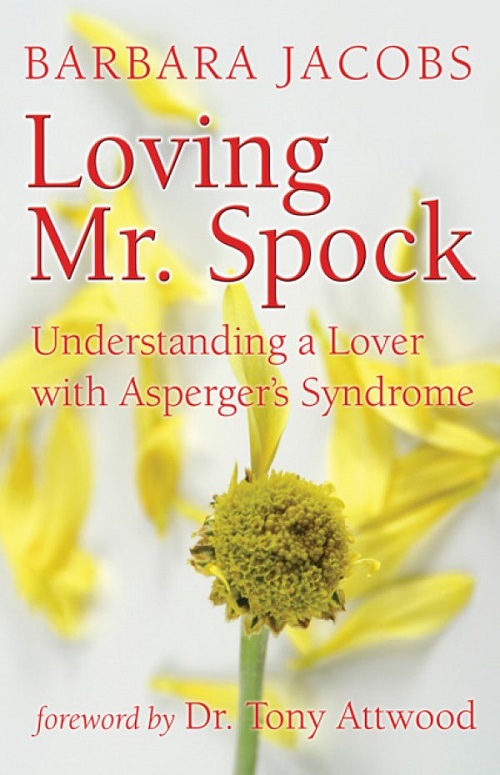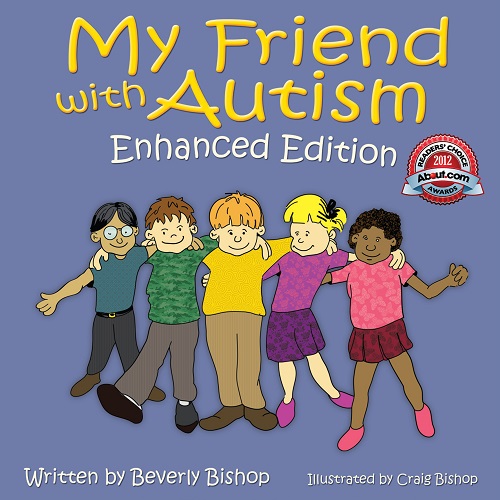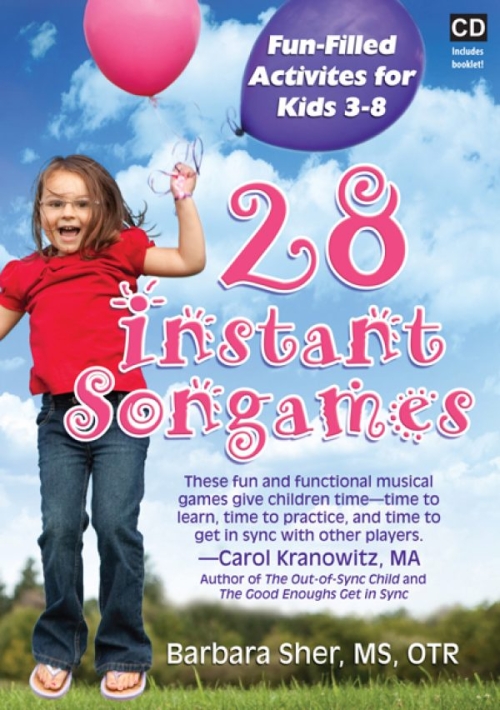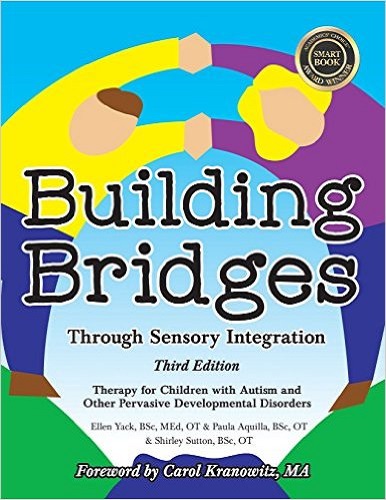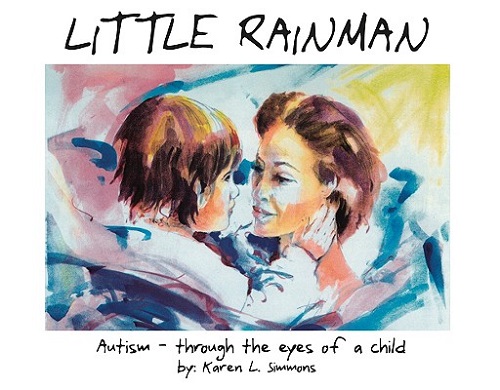-
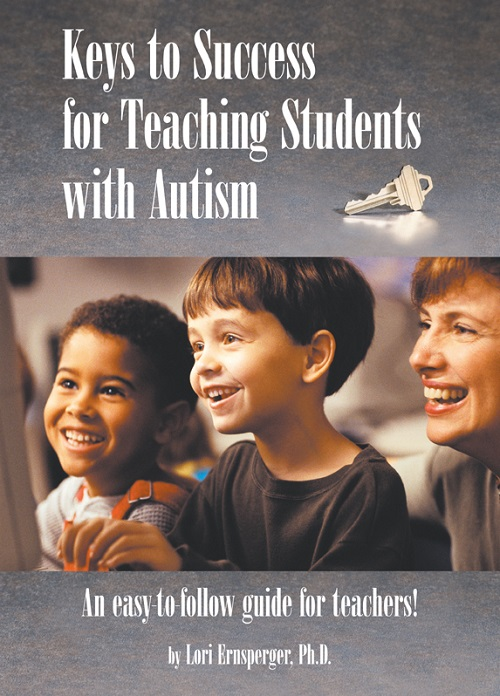 After more than 17 years of experience working with teachers struggling to implement an effective learning program for special needs kids, Dr. Lori Ernsperger decided it was about time someone created a comprehensive resource for practical use in the classroom. She wrote this book as a practical, step-by-step guide to educating students with autism.
After more than 17 years of experience working with teachers struggling to implement an effective learning program for special needs kids, Dr. Lori Ernsperger decided it was about time someone created a comprehensive resource for practical use in the classroom. She wrote this book as a practical, step-by-step guide to educating students with autism. -
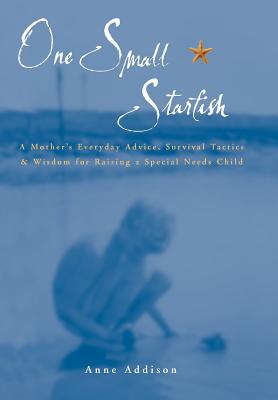 Anne Addison was overwhelmed when she brought Jack home from the hospital. In those first few days, Anne had a vague intuition that something was not right. Two years later, Jack was diagnosed with Attention Deficit Hyperactivity Disorder, speech and language delays, sensory integration problems, and subsequently, was found to have Asperger’s Syndrome.
Anne Addison was overwhelmed when she brought Jack home from the hospital. In those first few days, Anne had a vague intuition that something was not right. Two years later, Jack was diagnosed with Attention Deficit Hyperactivity Disorder, speech and language delays, sensory integration problems, and subsequently, was found to have Asperger’s Syndrome. -
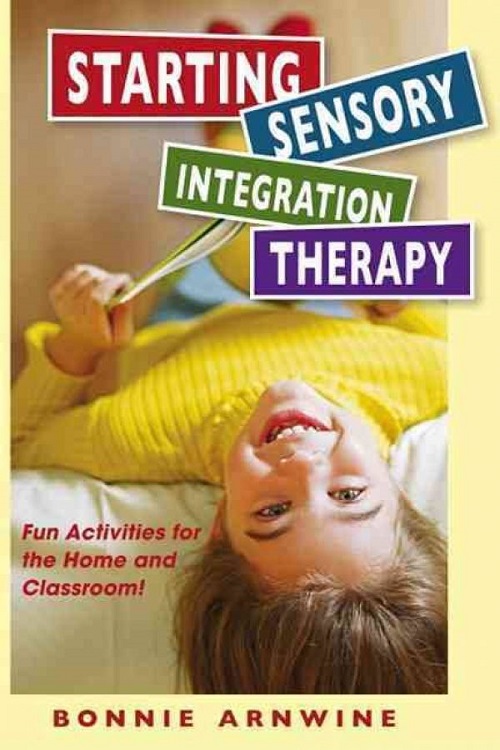 Starting Sensory Therapy offers 100+ activities and games for children with Sensory Processing Disorder (SPD). Parent of a son with SPD, author Bonnie Arnwine chose activities that require minimal time, money, and clean-up. Most “ingredients” are already on hand: empty yogurt cups, string, soap, flour, paper plates, etc.
Starting Sensory Therapy offers 100+ activities and games for children with Sensory Processing Disorder (SPD). Parent of a son with SPD, author Bonnie Arnwine chose activities that require minimal time, money, and clean-up. Most “ingredients” are already on hand: empty yogurt cups, string, soap, flour, paper plates, etc. -
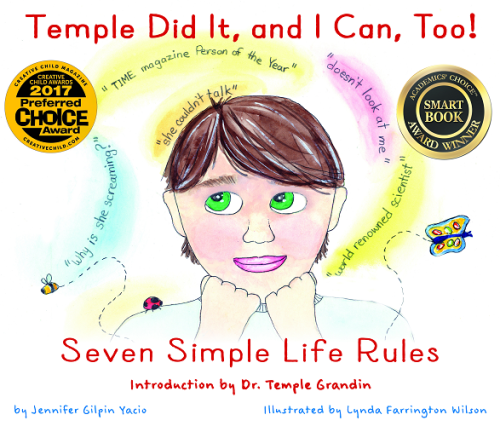 The FIRST children’s book by these two authors, Temple Did It and I Can Too! will help guide and inspire kids to reach their full potential. Winner of a 2015 Academic’s Choice Award, this book explains the obstacles Dr. Temple Grandin faced while growing up, the the rules she followed to overcome them, and her path to become a leading animal scientist and a world-famous advocate for those with autism. This colorful, hardcover book even includes worksheets for kids to identify and reach their goals!
The FIRST children’s book by these two authors, Temple Did It and I Can Too! will help guide and inspire kids to reach their full potential. Winner of a 2015 Academic’s Choice Award, this book explains the obstacles Dr. Temple Grandin faced while growing up, the the rules she followed to overcome them, and her path to become a leading animal scientist and a world-famous advocate for those with autism. This colorful, hardcover book even includes worksheets for kids to identify and reach their goals! -
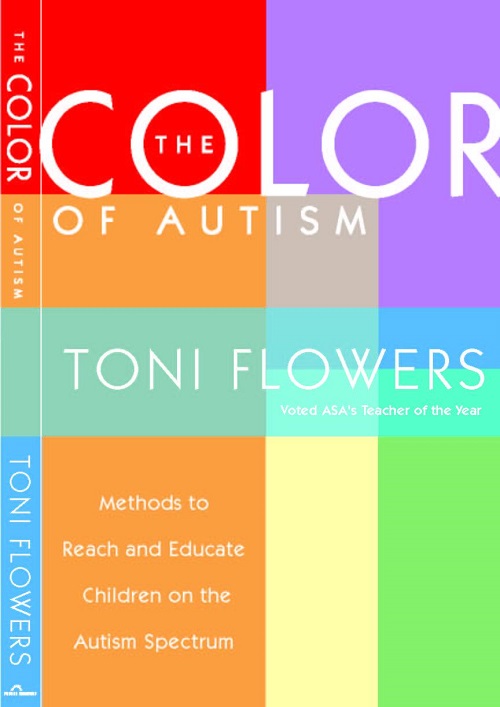 Voted “Teacher of the Year” by ASA, Toni Flowers invites readers to learn from, tweak, and refine the strategies she’s used during her quartercentury of teaching children with autism. Chockfull of great ideas, this book tackles some of the thorniest problems (runners, homework, screamers, setting limits, aggression, etc.) facing teachers and parents. It will quickly become a goto book in your library!
Voted “Teacher of the Year” by ASA, Toni Flowers invites readers to learn from, tweak, and refine the strategies she’s used during her quartercentury of teaching children with autism. Chockfull of great ideas, this book tackles some of the thorniest problems (runners, homework, screamers, setting limits, aggression, etc.) facing teachers and parents. It will quickly become a goto book in your library! -
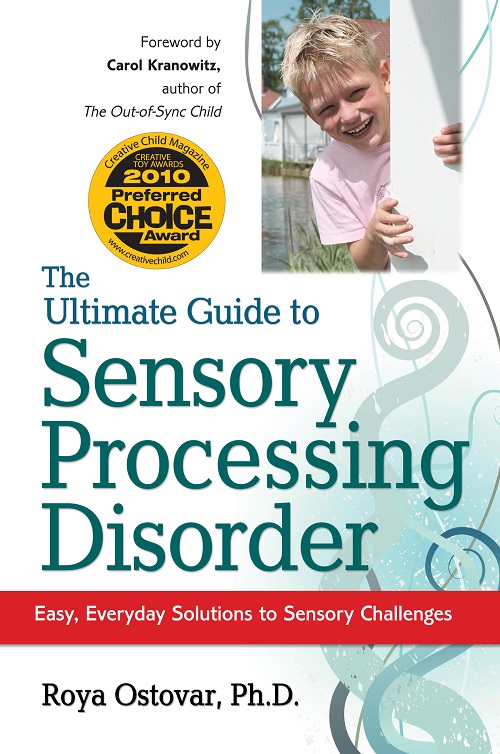 When sensory processing is impaired, lights can be too bright, sounds too loud, and clothes can actually be painful on the skin. It can be practically impossible for children to tolerate their day, let alone learn in a classroom. In this book, with a foreword by best-selling special-needs author Carol Kranowitz, neuropsychologist Dr. Roya Ostovar helps parents to help their children.
When sensory processing is impaired, lights can be too bright, sounds too loud, and clothes can actually be painful on the skin. It can be practically impossible for children to tolerate their day, let alone learn in a classroom. In this book, with a foreword by best-selling special-needs author Carol Kranowitz, neuropsychologist Dr. Roya Ostovar helps parents to help their children. -
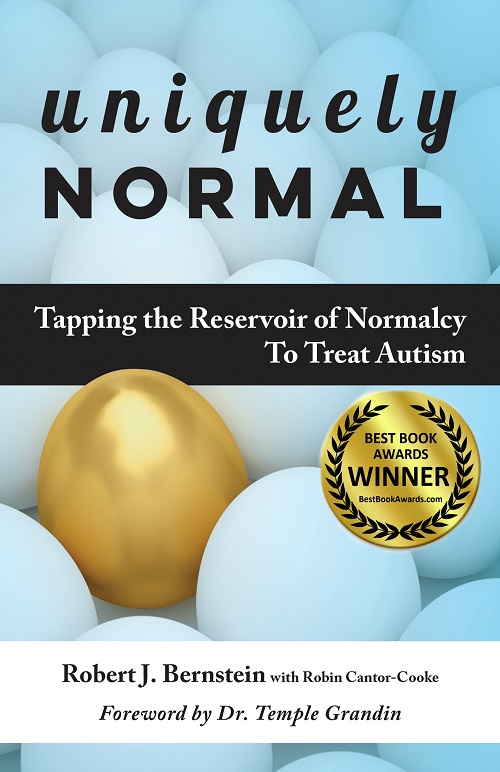 Author Robert J. Bernstein has found a different approach based on cognition thinking in helping people of all ages with ASD. Rob’s goal is for people with ASD to be able to live in the world and connect with the people in it as themselves, to express their unique humanity and engage more fully in the human interactions that give life meaning and make it worth the effort of getting out of bed every day. He believes that whatever he does therapeutically must be on the ASD individual’s terms; he or she must lead.
Author Robert J. Bernstein has found a different approach based on cognition thinking in helping people of all ages with ASD. Rob’s goal is for people with ASD to be able to live in the world and connect with the people in it as themselves, to express their unique humanity and engage more fully in the human interactions that give life meaning and make it worth the effort of getting out of bed every day. He believes that whatever he does therapeutically must be on the ASD individual’s terms; he or she must lead. -
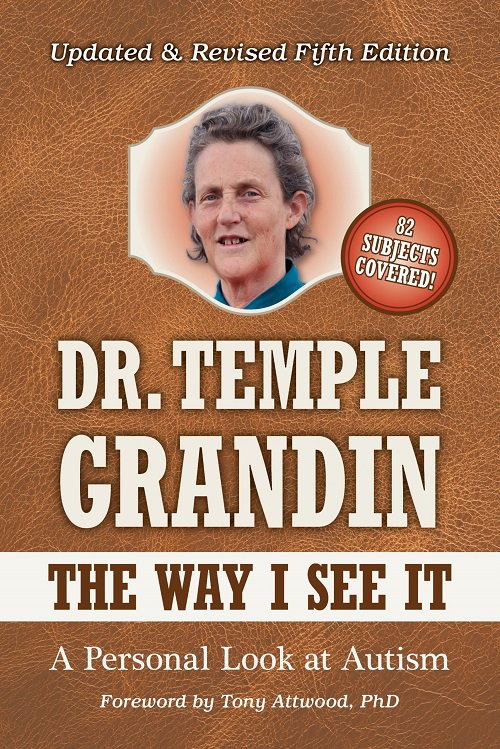 In the beloved classic book The Way I See It, Dr. Temple Grandin gets to the REAL issues of autism―the ones parents, teachers, and individuals on the spectrum face every day. In this updated fifth edition, Temple offers helpful dos and don’ts, practical strategies, and try-it-now tips all based on her insider perspective and a great deal of research.
In the beloved classic book The Way I See It, Dr. Temple Grandin gets to the REAL issues of autism―the ones parents, teachers, and individuals on the spectrum face every day. In this updated fifth edition, Temple offers helpful dos and don’ts, practical strategies, and try-it-now tips all based on her insider perspective and a great deal of research. -
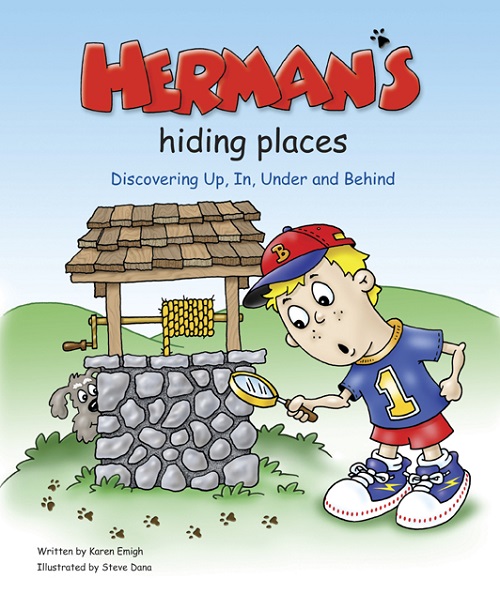 Karen Emigh’s son Brett—the “star” of all three of her books—was diagnosed with autism when he was six. Each book teaches a part of language that children on the autism spectrum often struggle with. In Herman’s Hiding Places, she teaches the concepts behind prepositions. Brett and his dog Herman play hide-and-seek, and Herman is “it.”
Karen Emigh’s son Brett—the “star” of all three of her books—was diagnosed with autism when he was six. Each book teaches a part of language that children on the autism spectrum often struggle with. In Herman’s Hiding Places, she teaches the concepts behind prepositions. Brett and his dog Herman play hide-and-seek, and Herman is “it.” -
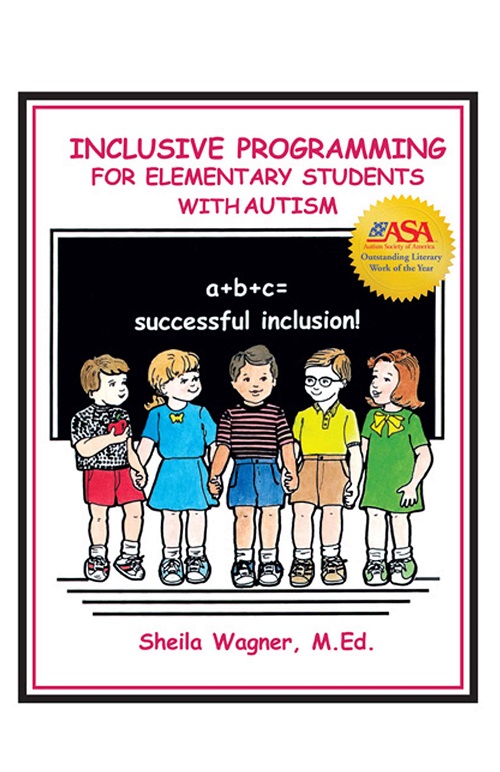 Winner of the Autism Society of America’s Literary Work of the Year Award, this first book in Sheila Wagner’s Inclusive Programming series provides an inclusion program for students with autism spectrum disorders. Teachers, parents, and students alike will benefit from Sheila’s insight and presentation as she outlines both theories and applications of inclusive programming for elementary school students.
Winner of the Autism Society of America’s Literary Work of the Year Award, this first book in Sheila Wagner’s Inclusive Programming series provides an inclusion program for students with autism spectrum disorders. Teachers, parents, and students alike will benefit from Sheila’s insight and presentation as she outlines both theories and applications of inclusive programming for elementary school students.

